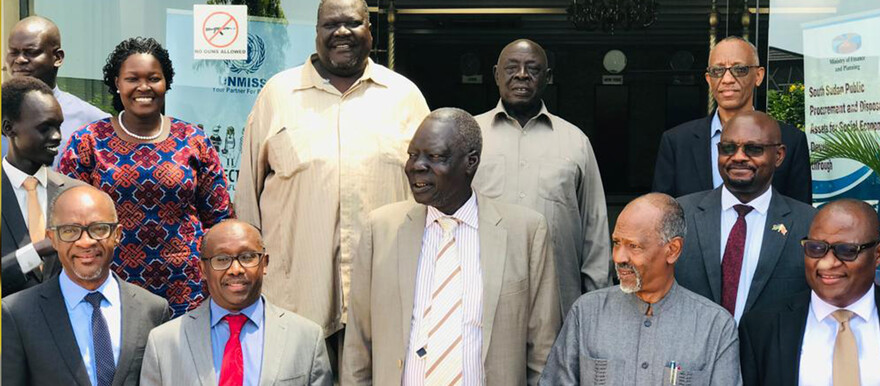The National Constitutional Amendment Committee (NCAC) was rejuvenated on Tuesday and started its second mandate to review the relevant security, financial and political parties’ laws to lay a foundation for reforms and prepare the country for elections.
The NCAC’s first mandate was to incorporate the revitalized peace agreement into the constitution.
Gichira Kibara, the NCAC chairperson told journalists that the committee resumed work on Tuesday, a few months after its term was extended by the parties to the peace agreement, but there was a delay due to the mobilization of resources to support its work.
“The NCAC, if you are aware, is mandated to incorporate the agreement into the constitution and also review and amend the laws on security to allow for the reforms in the agreement,” he explained. “We are also responsible for amending the laws to do with elections which include the Elections Act, Political Parties Act, and for amending the laws to govern public financial management and the Petroleum Revenue Management Act.”
He said the committee did a bit of work during the pre-transitional period and also during the first year of the transitional period but was affected by the Covid-19 pandemic.
“We were not able to complete the work and that is why our term was extended and we have now resumed so that we will be able to review the necessary laws that will allow for the reforms to be carried out and also allow for the elections to be carried out,” he added.
The minister of justice and constitutional affairs, Justice Ruben Madol, officially launched the second mandate of the NCAC on Tuesday at a function attended by IGAD Special Envoy to South Sudan Ambassador Ismail Wais and representatives from R-JMEC and UNPD.
Dr. Thomson Fontaine, the R-JMEC Deputy Chief of Staff, stressed the importance of the NCAC as one of the major institutions of the peace agreement.
“We would like them to focus on the Political Parties Act because as we move closer towards elections, having this act reviewed will allow for parties to be able to register freely and it will be a key part of the election process,” he said. “As you well know, the agreement is supposed to terminate in February 2023 and the key part of that is to have elections at the end of that period. So, the NCAC will ensure that we can review those laws and that we will in fact have that momentum of going forward.”
Meanwhile, Ambassador Ismail Wais said it was a great day for the peace agreement in South Sudan stressing that the NCAC is very important for the peace process and transformation in the country.
“The importance of this institution (NCAC) requires and demands everybody and every institution and every organization that cares that the peace process really advances surrenders all the support that this institution needs,” he said. “We know that they have done a good job and they are doing a good job. I would like to thank them for their dedication, professionalism, and sincerity. We promise that we will keep on supporting them as far as IGAD is concerned.”
The members and secretariat of the NCAC have not been paid their salary arrears for months. UNDP offered to support the committee in its second mandate. The Government is supposed to fund the work of the NCAC but has not released any funds.




